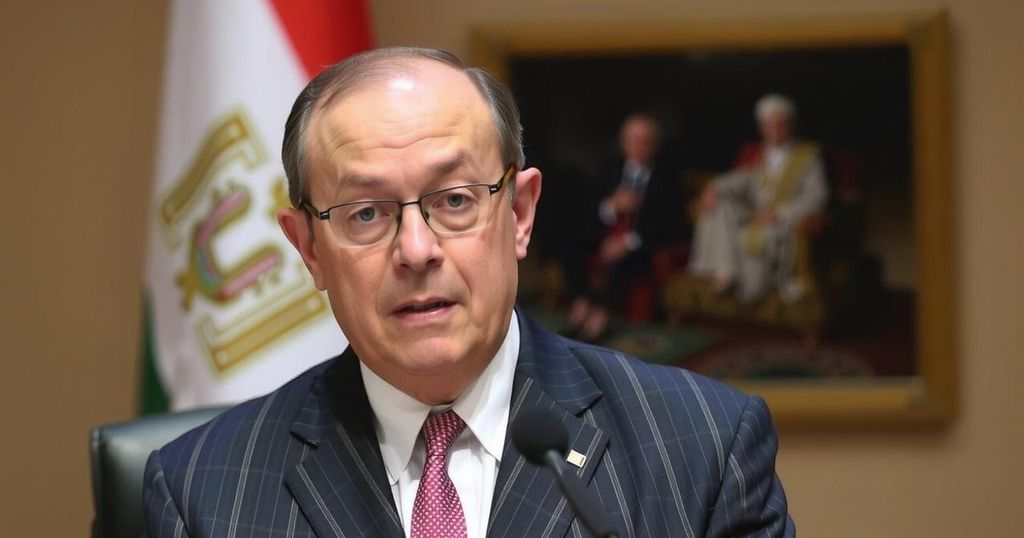Egypt’s Foreign Minister Badr Abdelatty has postponed an upcoming visit to Syria, a decision raising concerns regarding Egypt’s stance towards the Syrian transitional government. This comes amidst a robust anti-HTS media campaign within the country, highlighting a complex dynamic as Egypt confronts internal pressures while navigating the geopolitical landscape in the Middle East.
The anticipated visit of Egyptian Foreign Minister Badr Abdelatty to Syria has been postponed, raising questions regarding Egypt’s position towards the Syrian crisis. Following a recent phone call with Asaad Al-Shibani, Syria’s transitional government official, this decision reflects a cautious approach amid escalating media scrutiny and a campaign against Hayat Tahrir al-Sham (HTS). Egyptian media has aggressively criticized HTS, labeling them as terrorists and cautioning against engagement with them, which contrasts with the outreach seen from other regional nations.
The postponement follows a period of intense media campaigns in Egypt, particularly led by state-run outlets associated with United Media Services, that have tarnished the image of HTS and its leader, Ahmed al-Sharaa. Despite this, the communication between Abdelatty and Al-Shibani seemed to indicate a possible thawing of relations; however, the subsequent postponement suggests a lack of genuine willingness to acknowledge the transitional government. Ambassador Abdullah Al-Ashaal commented that while the phone call was significant, it did not equate to an endorsement of the Syrian government.
The backdrop to these actions involves a complex history of Egyptian politics, particularly under President Abdel Fattah Al-Sisi, whose regime has firmly opposed Islamist influences ever since the ousting of President Mohamed Morsi in 2013. Morsi’s administration had been supportive of the Syrian rebels, contrasting sharply with Sisi’s alignment with Assad’s regime. Such a stance appears rooted in Sisi’s desire to prevent any potential opposition within Egypt itself, leading to restrictive measures against Syrian refugees as well.
Interestingly, HTS has recently been recognized by other international powers as a necessary actor in post-Assad Syria despite its designation as a terrorist organization by several nations, including the United States and Egypt. The evolving dynamics indicate that while Egypt maintains a rigid public stance against HTS, there is an undercurrent of pragmatism in how the crisis in Syria is approached.
The geopolitical landscape surrounding the Syrian crisis remains fraught with complexities, particularly as it influences relationships between regional powers like Egypt and the transitional government in Syria. Egypt’s historical relations with Islamist groups, particularly post the Arab Spring and under the current regime of Abdel Fattah Al-Sisi, reflect broader regional tensions. The media narrative within Egypt reflects this tension, indicating a staunch opposition to groups such as HTS, even as other states re-evaluate their policies towards these entities amid changing realities on the ground in Syria.
In conclusion, the postponement of Minister Badr Abdelatty’s visit to Syria illustrates the precarious balance Egypt maintains in its foreign policy towards Syria amidst rising internal media pressure against HTS. The situation reflects ongoing complexities in Egyptian politics, particularly following the regime’s previous support of Assad and the crackdown on Islamist factions. As the region evaluates post-Assad realities, Egypt’s position seems to navigate a cautious line between domestic pressures and practical engagement in international relations.
Original Source: www.newarab.com






